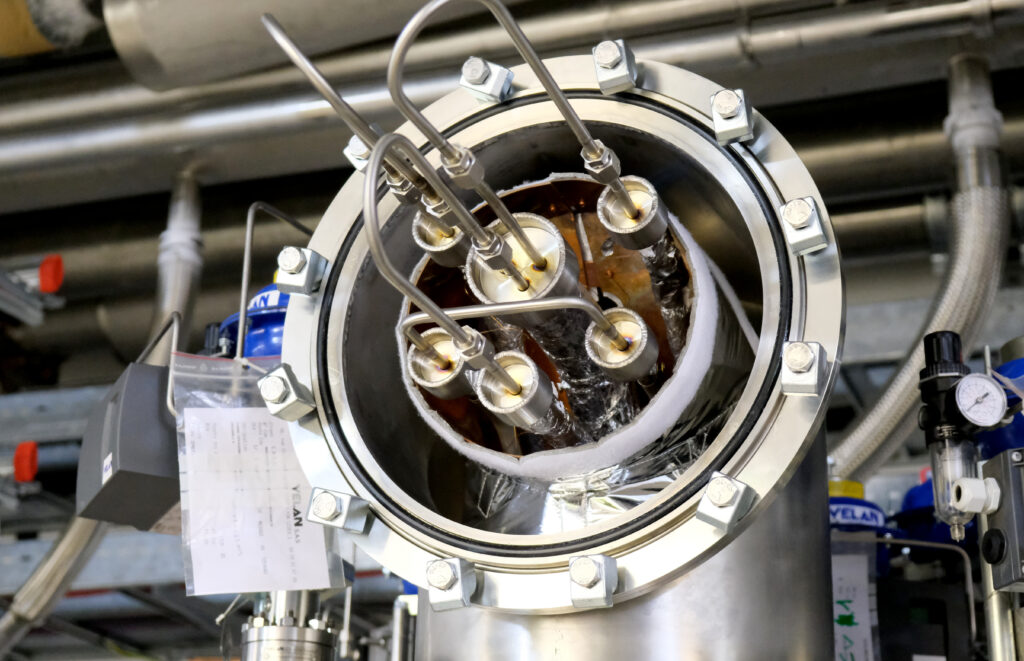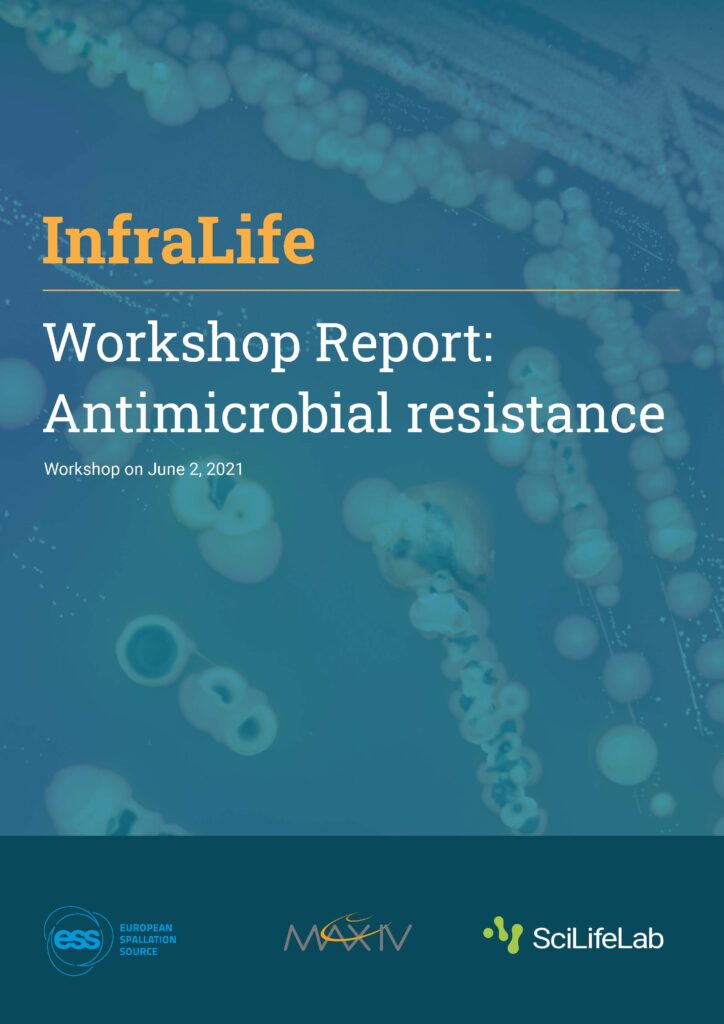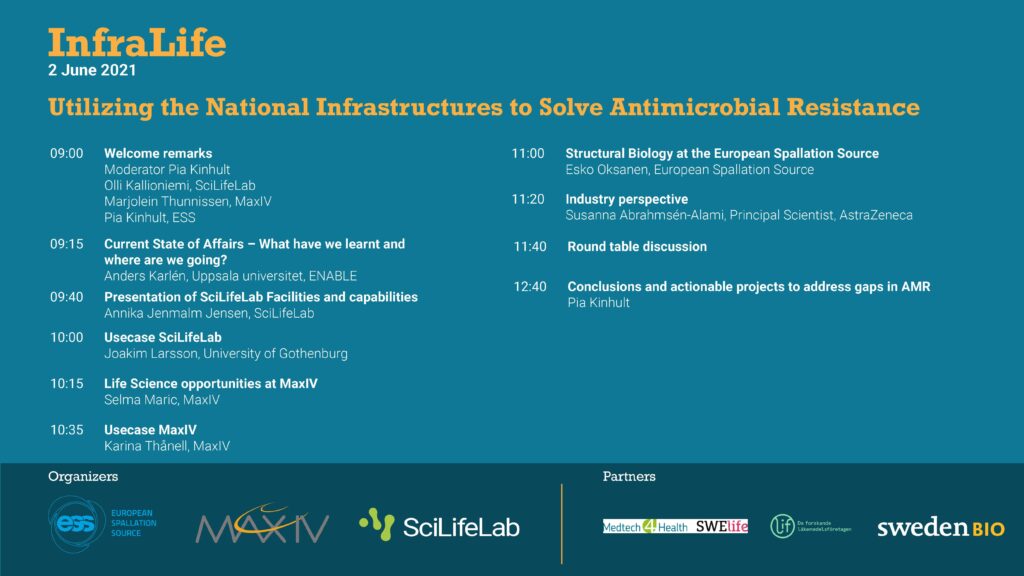2021 Workshop on June 2:
Antimicrobial resistance
The first InfraLife workshop gathered stakeholders in the field of antimicrobial resistance (AMR) for a joint discussion on June 2nd, 2021. Organised by SciLifeLab, MAXIV, ESS, SwedenBIO, LIF, SWElife, MedTech4Health.
Antimicrobial resistance is a major health threat and resistance to common antibiotics is estimated to cause 700,000 deaths each year globally. There is a strong need for new antimicrobials, but also for better diagnostics and non-antibiotic methods to advance the development of new strategies against AMR.
Successfully addressing AMR requires a collaborative intersectoral approach. Together with key stakeholders from the pharmaceutical industry, diagnostic industry and academic setting, the workshop addresses current unmet needs in AMR research and provided the opportunity to discuss how the National infrastructures, SciLifeLab, MAXIV and ESS, can contribute to accelerating and advancing the field.
Summary
The workshop included descriptions of the respective infrastructures and connected user case presentations with relevance to the AMR field as well as state of the art descriptions of the AMR filed from different perspectives.
Whether it be surveillance and prevention strategies, material development or sampling techniques, cross-sectoral and cross-thematic collaboration is needed for the academic sector to feed scientific innovation into the innovation system, for the private sector to pursue product development, and for the health care systems to implement new findings and innovation in clinical practice.
The need for more industry-industry collaborations between sectors was also highlighted. Subsequently, new national and international collaborations and networks will be necessary, and the research infrastructure were suggested to facilitate consortium formation and funding.
Specific aspects highlighted, where the research infrastructures could play a role, included creating clear entry ways for industry to use the infrastructures and increased expertise support when using the facilities. This could enable a collaborative “idea to results” workflow. The infrastructures could also help forging links between industry and academia by facilitating common data collection, storage, sharing and analysis.
Read more in the InfraLife AMR workshop report available below.


